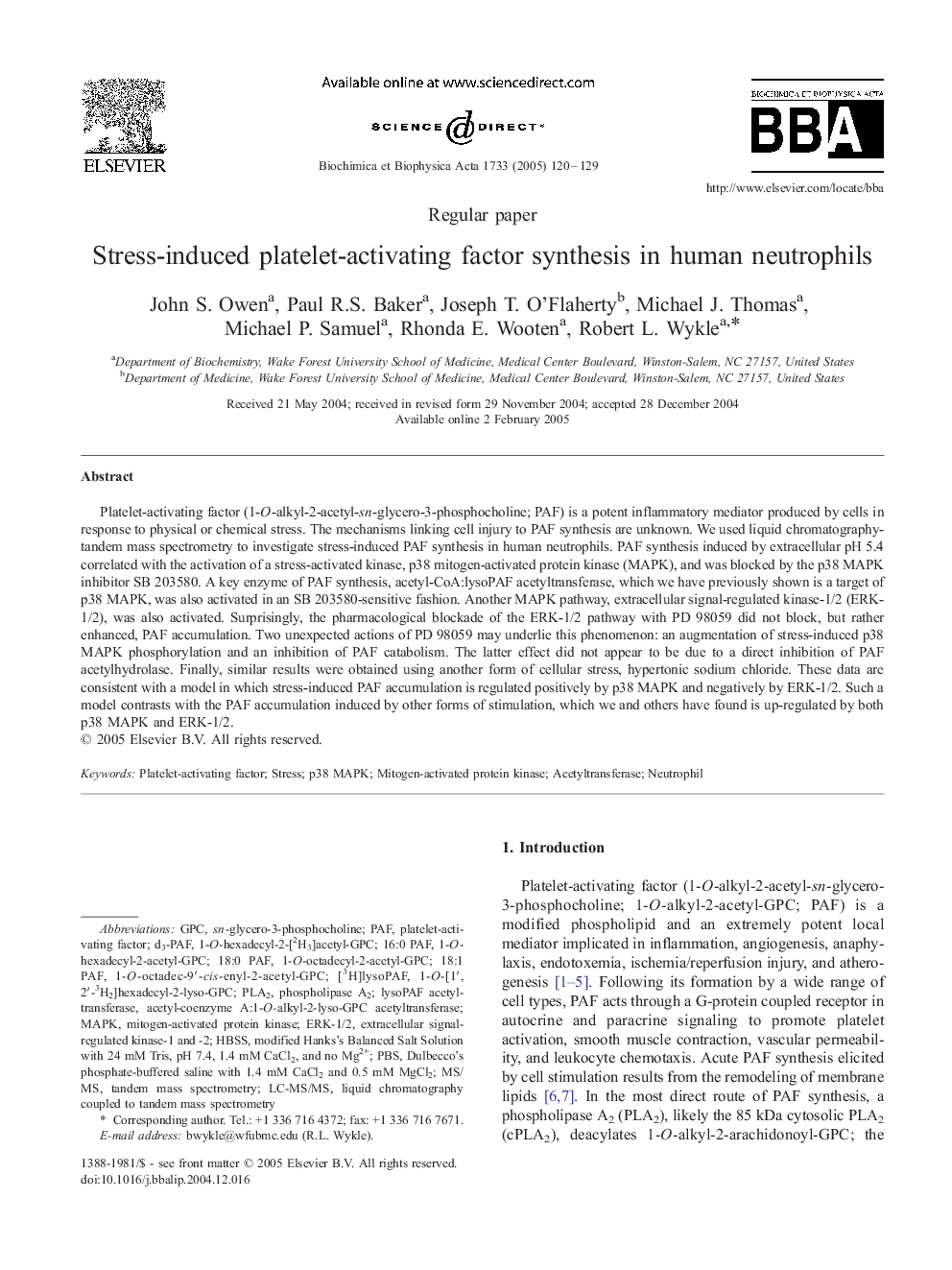| Article ID | Journal | Published Year | Pages | File Type |
|---|---|---|---|---|
| 9886588 | Biochimica et Biophysica Acta (BBA) - Molecular and Cell Biology of Lipids | 2005 | 10 Pages |
Abstract
Platelet-activating factor (1-O-alkyl-2-acetyl-sn-glycero-3-phosphocholine; PAF) is a potent inflammatory mediator produced by cells in response to physical or chemical stress. The mechanisms linking cell injury to PAF synthesis are unknown. We used liquid chromatography-tandem mass spectrometry to investigate stress-induced PAF synthesis in human neutrophils. PAF synthesis induced by extracellular pH 5.4 correlated with the activation of a stress-activated kinase, p38 mitogen-activated protein kinase (MAPK), and was blocked by the p38 MAPK inhibitor SB 203580. A key enzyme of PAF synthesis, acetyl-CoA:lysoPAF acetyltransferase, which we have previously shown is a target of p38 MAPK, was also activated in an SB 203580-sensitive fashion. Another MAPK pathway, extracellular signal-regulated kinase-1/2 (ERK-1/2), was also activated. Surprisingly, the pharmacological blockade of the ERK-1/2 pathway with PD 98059 did not block, but rather enhanced, PAF accumulation. Two unexpected actions of PD 98059 may underlie this phenomenon: an augmentation of stress-induced p38 MAPK phosphorylation and an inhibition of PAF catabolism. The latter effect did not appear to be due to a direct inhibition of PAF acetylhydrolase. Finally, similar results were obtained using another form of cellular stress, hypertonic sodium chloride. These data are consistent with a model in which stress-induced PAF accumulation is regulated positively by p38 MAPK and negatively by ERK-1/2. Such a model contrasts with the PAF accumulation induced by other forms of stimulation, which we and others have found is up-regulated by both p38 MAPK and ERK-1/2.
Keywords
Related Topics
Life Sciences
Biochemistry, Genetics and Molecular Biology
Biochemistry
Authors
John S. Owen, Paul R.S. Baker, Joseph T. O'Flaherty, Michael J. Thomas, Michael P. Samuel, Rhonda E. Wooten, Robert L. Wykle,
